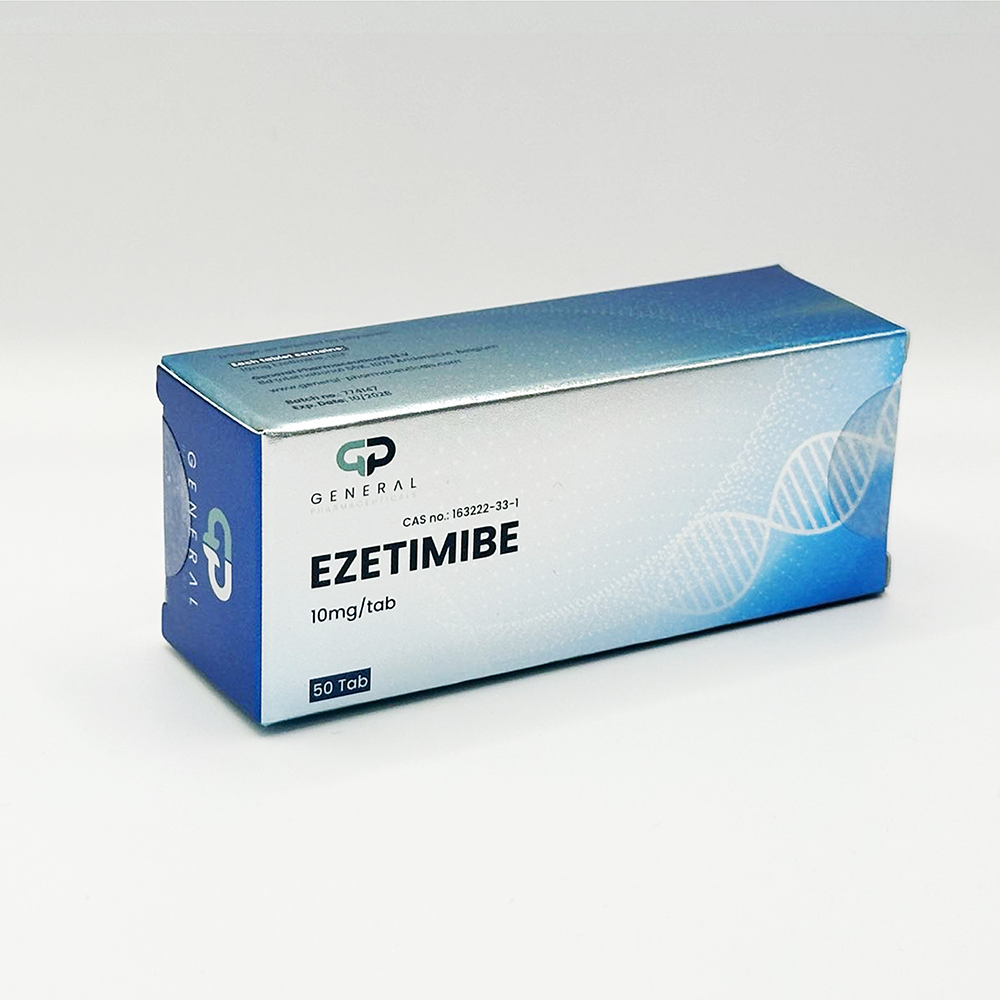
Ezetimibe
Ezetimibe is a prescription medication used to lower cholesterol levels in the blood, particularly low-density lipoprotein (LDL) cholesterol, also known as “bad cholesterol.” As a unique cholesterol absorption inhibitor, ezetimibe offers an effective option for patients who cannot achieve their cholesterol targets through diet and exercise alone, and it is often used in combination with statins or other lipid-lowering therapies.
Medical Uses
Ezetimibe is indicated for the treatment of hypercholesterolemia, a condition characterized by elevated cholesterol levels in the blood. It is particularly effective in lowering LDL cholesterol and is often prescribed as an adjunct to dietary and lifestyle changes. Ezetimibe can be used alone (monotherapy) or in combination with statins to enhance cholesterol reduction in patients with primary hyperlipidemia or familial hypercholesterolemia. It is also prescribed for individuals with mixed dyslipidemia to address both cholesterol and triglyceride levels.
Mechanism of Action
Ezetimibe works by selectively inhibiting the Niemann-Pick C1-Like 1 (NPC1L1) protein in the small intestine, which is responsible for the absorption of dietary and biliary cholesterol. By blocking this process, ezetimibe reduces the amount of cholesterol entering the bloodstream, leading to a decrease in total cholesterol, LDL cholesterol, and other harmful lipid markers. This mechanism complements the action of statins, which reduce cholesterol production in the liver.
Side Effects
Ezetimibe is generally well-tolerated, but some patients may experience side effects. Common adverse reactions include diarrhea, fatigue, and upper respiratory tract infections. Less commonly, it may cause muscle pain, joint pain, or abdominal discomfort. Rare but serious side effects include liver enzyme abnormalities or allergic reactions. Patients are advised to report any unusual symptoms to their healthcare provider promptly.
Interactions
Ezetimibe can interact with other medications, potentially altering its effectiveness or increasing the risk of side effects. It may interact with bile acid sequestrants, fibrates, and certain anticoagulants. Co-administration with statins may increase the risk of muscle-related side effects, such as myopathy or rhabdomyolysis. Patients should inform their healthcare provider of all medications, supplements, and medical conditions to minimize the risk of interactions and ensure optimal treatment outcomes.

